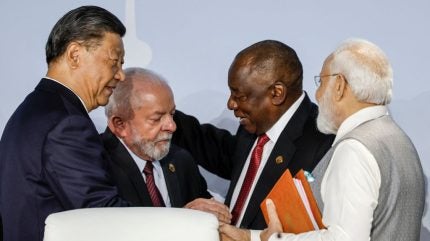
India and China have reached a border agreement four years after one of the deadliest border clashes in recent memory, both governments have confirmed.
The announcement comes ahead of the BRICS summit where Chinese President Xi Jinping and Indian Prime Minister Narendra Modi will be in attendance.
Vikram Misri, India’s Foreign Secretary, said that the deal followed weeks of negotiations between country representatives and was meant to lead to “disengagement and a resolution of the issues that had arisen in these areas in 2020”.
Lin Jian, a Chinese Foreign Ministry spokesman, said: “Both sides have arrived at a resolution on the relevant matter, which China views favourably,” and that in the future “the Chinese side and Indian sides will implement those resolutions”.
The announcement came as both country’s leaders arrived in Russia for a BRICS regional group meeting on 22–24 October. Officials from both sides have not made any comments regarding the possibility of Modi and Jinping holding private talks during the summit. The news could awaken hopes for China and India’s business relationship, which stalled after the border clash in 2020.
The clash took place in the Ladakh region. It hosts a long and ill-defined border that sits amid rivers, lakes and snow caps, causing the frontier to shift and bringing troops head to head. In the 2020 incident, at least 20 Indian soldiers died. The Chinese military confirmed only four deaths on their side, but many have cast doubt on this official figure and say it was likely more.
Following this incident, India banned 320 Chinese apps, raised taxes on Chinese companies and increased the red tape for Chinese investment.
In July, India’s chief economic advisor said that in order for the country to realise its ambition of becoming a manufacturing hub, it had to either increase imports from China or attract more foreign direct investment.
When Indian Foreign Minister Subrahmanyam Jaishankar was asked what the border deal would mean for trade and investments, he warned that it was still early days. “It has just happened. There will be meetings to see what the next steps will be. I wouldn’t go so fast.”



